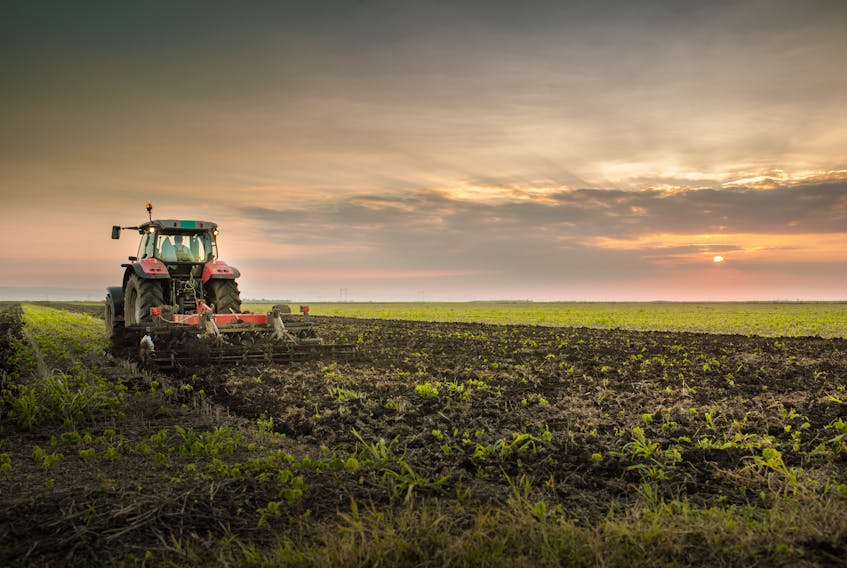Lockdowns and disruptions from the COVID-19 pandemic have affected women disproportionately.
And for those working in the agricultural sector, which feeds and adds massive value to the economy in Atlantic Canada and beyond, these surfacing gender disparities lie at its root.
When daycares and schools closed for the year, Amy VanderHeide had no option but to put her career on hold for her three sons – ages 12, eight and five – before coughing up money for private care.
“At the end of May, I spent a lot of time watching from the sidelines while caring for the kids. I could see the farm work piling up, and it was frustrating knowing I could not help,” said the Annapolis Valley poultry, crop and hay farmer.

“It was pretty stressful because I like to work, but there is that guilt (and pressure) about not being with my kids. But when it is a family business, every member has a key role to play. If you cannot fulfil your role, it takes a toll on the business and everyone.”
To keep the farm afloat during one of the busiest times of the year, planting season, VanderHeide hired a sitter for five days a week while adding an extra financial strain.
“My husband and I pay the sitter full-time because she could easily find a babysitting job somewhere else. But we want to keep her. We like her, and I wouldn’t be able to work without her.”
Not just pandemic problem
The struggle for childcare has been a persistent issue for farming families across Atlantic Canada before the pandemic, said Katie Keddy. She and VanderHeide are the co-creators of the Maritime Agriculture Women’s Network.
“Money that is going to pay for childcare is resulting in farmhands not being able to be hired as they are unable to support both expenses at this point in the year. As business owners, or shareholders, Employment Insurance is not accessible,” said Keddy, a mother of a five- and seven-year-old, horticulture (second-generation) farmer and president of Kings County Federation of Agriculture.

Keddy and VanderHeide have more than 900 female farmers in their network from Nova Scotia, P.E.I., Newfoundland and Ontario. The system offers a safe and supportive environment to voice concerns – the main one being balancing work and childcare.
“CERB has become inaccessible for those bringing in over $1,000 a month. Farmers trying to work and bring their children along are reporting losses in production due to the inability to effectively manage ones’ time with children present and their needs,” said Keddy.
The other concern for family farms is the safety risks when children are around heavy equipment, machinery, chemicals, livestock and large numbers of employees.
Both women have written and voiced these concerns to local government but said inequality persists.
“While I have never felt held back on my farm or that anyone believed I could not do something because I was a woman, when the pandemic happened, these old barriers and stereotypes resurfaced,” said Keddy.
“While I have never felt held back on my farm or that anyone believed I could not do something because I was a woman, when the pandemic happened, these old barriers and stereotypes resurfaced. COVID-19 showed when something unpredictable happens, how quickly we reverse into stereotypical gender roles and how far we truly have to go.”
- Katie Keddy
“COVID-19 showed when something unpredictable happens, how quickly we reverse into stereotypical gender roles and how far we truly have to go.”
Keddy said many members in their online network have privately shared the same concerns in fear of being judged.
“They are being told by the outside world to ‘embrace this time with your kids,’ but those not in farming do not understand that everyone has a significant role to play,” she said.
Gender discrimination
“I have experienced salesperson calls or visits to the farm in the past, and the first thing they ask me is, ‘where’s my father or husband?’ Now they know me, it has improved, but before, I was never the first point of contact. It is frustrating, and it makes you feel like you have to be validated,” she said.
“Some of the bigger challenges I faced were co-signing at banks with my husband, although this is and has improved. Other things women shared in our group have included operating heavy equipment because people try and tell you how to use it – even though you have been farming for years. It is an unconscious bias.”
VanderHeide and Keddy are fighting for protection and support from gender discrimination within the industry. They want interventions to improve work and life balance, through programs or financial help with childcare so farm families can continue to produce food efficiently and safely for Canadian families.
“It is expected women will figure it out with childcare, and the government doesn’t need to step in and help farm families because it’s all happening organically in our communities. But we have no other choice. I know a few families where the mother is the breadwinner, but now, 95 per cent of women are staying home,” said Keddy, referring to members in her agriculture network.
VanderHeide urges women not to be intimated and use their voice.
“Katie (Keddy) and I are both involved in agricultural boards and committees, and many women ask us ‘how do we get heard in the old boy’s club?’ My advice is to keep pushing. Don’t give up, because if you do, then we have lost the battle.”









